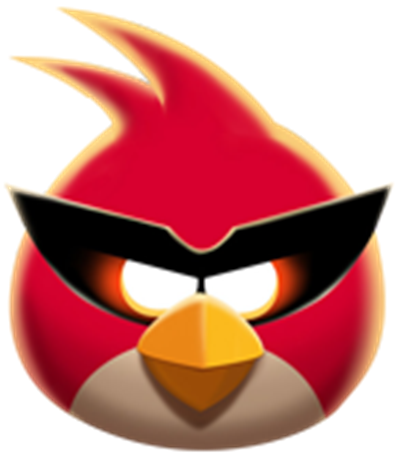
Angry Birds, Call of Duty or online bingo? Whatever your preference, games have become part of many people’s leisure, so it was only a matter of time before someone found a way to transfer it to the world of work. “Gamification is when video games and business have a baby,” says Mario Herger, founder of consultancy Enterprise Gamification. The common definition is “using game design elements and principles in a non-game context”.
你喜欢玩“愤怒的小鸟”(Angry Birds),“使命召唤”(Call of Duty),还是在线宾戈游戏?不管你喜欢哪个,游戏已成为许多人休闲生活的一部分,因此人们迟早会找到将游戏转移到工作世界中的方法,这只是时间问题。咨询公司Enterprise Gamification的创始人马里奥•赫杰(Mario Herger)说:“游戏化就是视频游戏与商业结合的产物。”其普遍定义是“在非游戏环境中运用游戏设计元素和原则”。
Gaining in popularity over the past few years, the point of gamification is to make mundane, difficult or time- consuming tasks more fun so we do them more effectively. It works, Mr Herger says, by tapping into our natural curiosity and sociability, desire for mastery and having fun.
近几年来游戏化越来越受到欢迎,其意义是让单调、困难或费时的任务变得更有趣,好让人们更有效地去完成它们。赫杰说,游戏化发挥作用,是通过利用人类好奇、喜好社交的天性,以及控制欲和爱玩的心理。
Some games also use the “flow” principle, where a game’s difficulty is carefully matched to skill: initially, it is kept simple but as soon as you figure out how the game works, the difficulty notches up. Importantly, the immediate and constant feedback that online games give, whether cheering birds — as in Angry Birds — or the allocation of points, is being incorporated into the work version.
有些游戏还运用了心理学中的“心流”(flow)理论,使游戏难度与技能水平准确匹配。一开始游戏会保持较低难度,一旦你搞清楚游戏是怎么玩的,难度就会升级。重要的是,无论是“愤怒的小鸟”中那些欢呼的小鸟,还是奖励得分,在线游戏所提供的这种即时、持续的反馈,正被融入到工作游戏应用中。
“Companies are now using systems such as BreatheHR to encourage faster feedback in appraisal systems and praise from co-workers to motivate their employees,” says Pete Jenkins, founder of consultancy Gamification+.
咨询公司Gamification+的创始人皮特•詹金斯(Pete Jenkins)说:“企业正在使用BreatheHR之类的系统,以促进评估系统加快反馈速度,并鼓励同事们互相赞赏,从而激发员工积极性。”
But gamification remains a niche tool mostly used in recruitment, learning and development, and sales.
但游戏化仍然是个小众工具,主要用于招聘、学习、开发以及销售。
Call centres have taken up systems such as that by Playvox, which helps companies develop gaming strategies that use leader boards, levels and performance metrics to turn a boring job into a more enjoyable competition. Seriosity has created a game to deter people from sending too many emails. Deloitte, the professional services firm, developed its own app called Who What Where, in which consultants share information about clients and projects to improve collaboration.
呼叫中心已开始使用由Playvox开发的此类系统。Playvox帮助企业利用排行榜、分级和绩效指标开发游戏化策略,将枯燥的工作变成更有趣的竞争。Seriosity已经设计出一款游戏来制止人们发送太多电子邮件。专业服务机构德勤(Deloitte)开发了一款名为“Who What Where”的应用,咨询人员可以在上面分享客户和项目信息,从而加强协作。
Games can never apply to every aspect of work. But for measurable goals, gamified personal productivity apps can be useful. Mr Jenkins uses Trello, a task management app: “I particularly like the progress bar it shows as you tick elements of a task completed.” It is also a good example of gamification not having to look like a game to be effective, he says.
游戏永远不可能适用于工作的每一个环节,但对于可衡量的目标而言,游戏化个人效率应用是可以发挥作用的。詹金斯利用了任务管理应用Trello:“当你将一项任务的某些部分勾选完成时,它显示的那个进度条我尤其喜欢。”他说这也很好地证明了,游戏化不必看起来像个游戏也可以有效。
Other popular apps include Habit RPG and Todoist Karma, where good habits are rewarded with points, or Task Hammer and Epic Win, which also include role play.
其他流行应用包括Habit RPG和Todoist Karma,它们会用分数对好习惯加以奖励,还有Task Hammer以及Epic Win,这两款应用还包含角色扮演元素。
Although gamification has become a buzzword among HR directors, the truth is that take-up is limited. In some cases, that was because of the temptation by companies to tack on poorly designed gamification apps just to look the part. In such cases, games fail because the incentives they offer workers are meaningless, their goals are too ambitious or they are becoming boring and a distraction.
虽然游戏化已成了人力资源总监中的流行词,但事实上它的接受度是有限的。在某些情况下,原因在于企业容易仅仅为了显示自己跟上了潮流而采用设计得不好的游戏化应用。这种情况下游戏机制就会失败,原因包括它们提供给员工的激励毫无意义,它们设定的目标过于远大,或者它们变得无聊,让人分心。
After all, most of us realise we are not in the office to have fun but to get on with our real work with real financial incentives.
毕竟,绝大多数人都知道上班不是为了寻开心,而是为了在现实的经济激励下,完成现实的工作。













